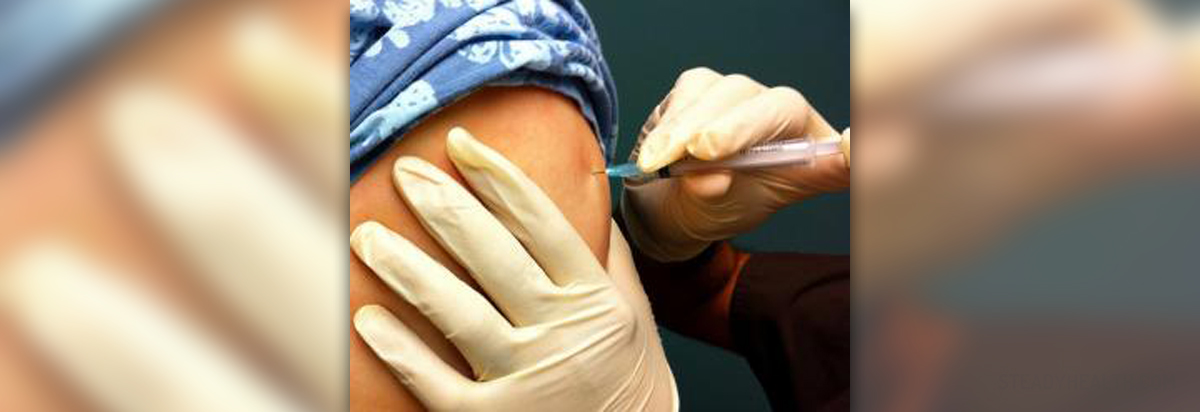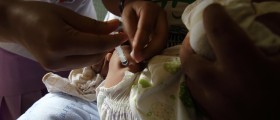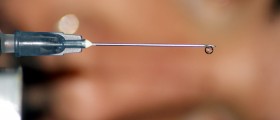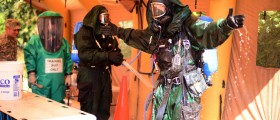
A so-called "tetanus shot" is a vaccine used to combat the dangerous and potentially deadly bacteria called Clostridium tetani. Almost everyone has been vaccinated for tetanus as a child, however the vaccine needs to be repeated at regular intervals throughout life, because its efficacy wears off after a time.
What is tetanus?
Tetanus, also called lockjaw, is a serious medical condition that is characterized by convulsions and contractions of the skeletal muscles. It occurs after the bacterium Clostridium tetani enters the body through deep wounds, cuts or punctures. These anaerobic bacteria require an environment with no oxygen and usually thrive in dirt, debris, and animal feces. The treatment usually consists of antibiotics and immunoglobulin.
In order to prevent this highly dangerous medical condition, a person needs to be regularly vaccinated. Fortunately, even those people who skipped a vaccine can save themselves from tetanus through post-exposure prophylaxis. This means that everyone who got a deep puncture wound and those whose wounds are suspected to be contaminated can get vaccinated and prevent the bacterial infection, even after they may have been exposed.
Tetanus shot frequency: How often do you need to get vaccinated against tetanus?
According to current medical standards, it is recommended that a child get five tetanus shots during their childhood, even in circumstances where they are not suspected to have been exposed to tetanus. The shot is usually a combination of tetanus, acellular pertussis, and diphtheria vaccines (the so-called DTP vaccine). The first dose of this vaccine is given when a child is two months old. The second follows at four months, the third at six months, the fourth anywhere between 15 and 18 months and the fifth between ages 4 and 6.
As for the adult population, it is generally advised that they receive one tetanus shot every 10 years. That type of vaccine is a booster and is called tthe Tdap vaccine. People who cannot remember having tetanus shots as children usually receive Tdap in a series of three. As the tetanus vaccine weakens over time, it is best to have boosters on a regular basis. Elderly people should get tetanus and diphteria shots every 10 years as well.
It is important to get tetanus shots after injuries, especially if they are caused by rusty metal objects or deep puncture wounds, caused, for example, by stray kittens. The vaccine should be given within 48 hours after the injury to successfully prevent tetanus. Most medical experts recommend these post-exposure shots even for people who are regularly vaccinated. These shots are 100% effective against the bacteria that cause tetanus.
However, a tetanus shot should not be given to a person who is ill or still not fully recovered. In addition, some people are allergic to one or more components of the tetanus shot, and they should not receive it, or otherwise they may get a severe allergic reaction or anaphylaxis.
As for the side effects of this vaccine, they are usually mild and consist of redness or swelling at the site where the vaccine was given. There may also be some nausea and a headache, as well as low grade fever and fatigue. More severe side effects of the tetanus shot include vomiting, diarrhea, high fever, seizures, coma and brain damage.

















Your thoughts on this
Loading...